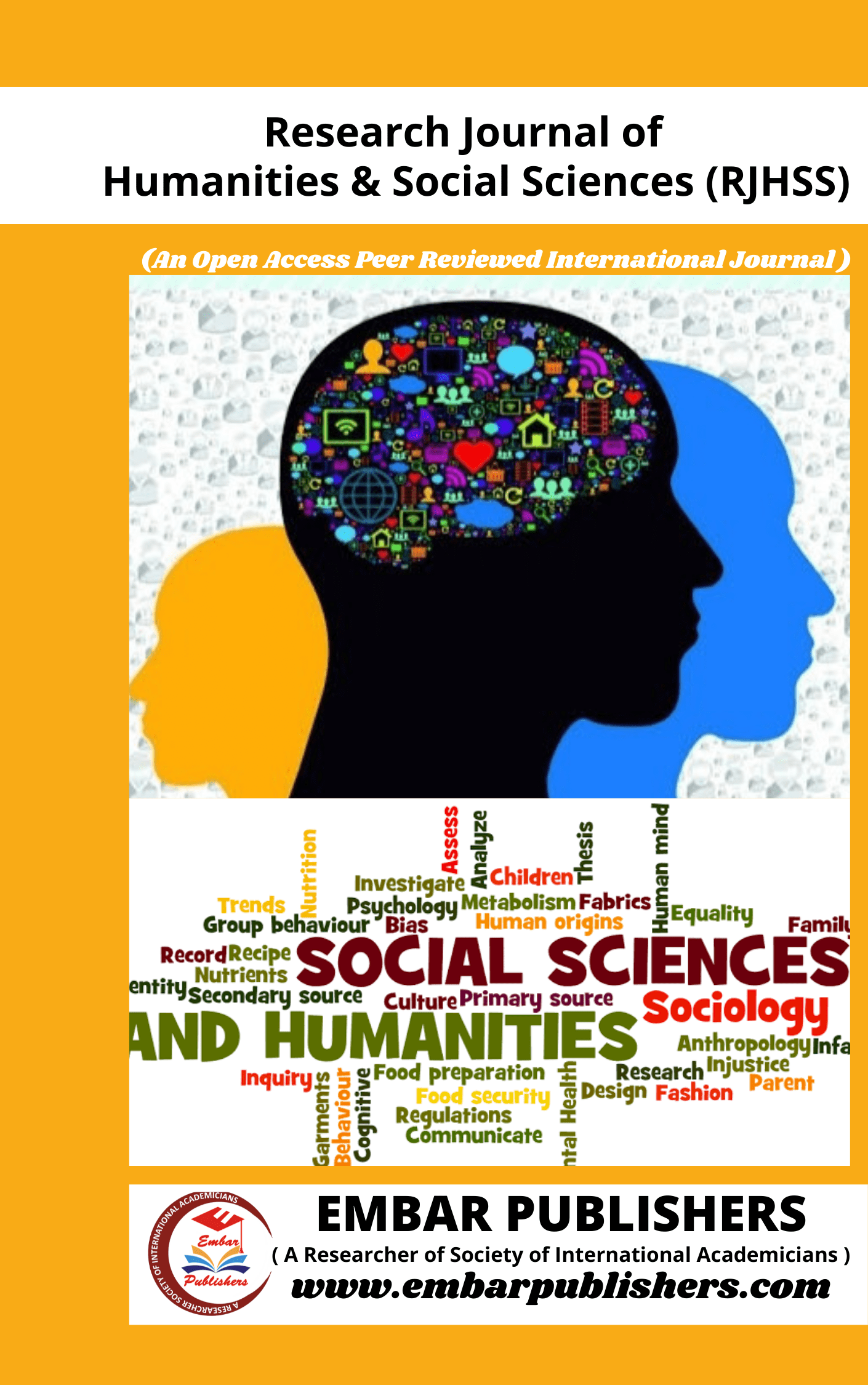
The Role of Folklore in Shaping National Narratives in Post-Colonial Societies.
Ketevan Shoshiashvili
Caucasus International University
DOI: https://doi.org/10.58924/rjhss.v3.iss5.p2
Published Date: 27-Oct, 2024
Keywords: Folklore, Post-Colonial Societies, National Identity, Globalization, Cultural Preservation.
Abstract:
Abstract: This research paper explores the critical role of folklore in shaping national narratives within post-colonial societies, focusing on how traditional myths, legends, music, dance, and oral traditions contribute to the construction of national identity. By examining the historical context, the paper highlights the ways in which pre-colonial folklore served as a vital repository of cultural knowledge and social values. The analysis also addresses the impact of colonialism on these traditions, detailing how colonial powers often suppressed or manipulated local folklore to serve their own ends. In the post-colonial period, there has been a resurgence of interest in folklore as a means of reclaiming cultural identity and fostering national pride. However, the paper also critically examines the challenges associated with the use of folklore in nation-building, including the risks of romanticization, the potential for exclusionary narratives, and the effects of globalization on the preservation and transformation of folklore. Through case studies from Africa, Asia, and Latin America, the research provides a comprehensive understanding of the complex interplay between folklore and national identity in post-colonial contexts.
References:
1. Anderson, B. (2006). Imagined communities: Reflections on the origin and spread of nationalism (Rev. ed.). Verso.
2. Ashcroft, B., Griffiths, G., & Tiffin, H. (2007). Post-colonial studies: The key concepts (2nd ed.). Routledge.
3. Brandes, S. (2006). Skulls to the living, bread to the dead: The day of the dead in Mexico and beyond. Blackwell Publishing.
4. Chakrabarty, D. (2002). Habitation of modernity: Essays in the wake of subaltern studies. University of Chicago Press.
5. Falola, T. (2001). Culture and customs of Nigeria. Greenwood Press.
6. Fernandez, D. G. (2003). The soul book: Introduction to Philippine shamanistic traditions. GCF Books.
7. Finnegan, R. (2012). Oral traditions and the verbal arts: A guide to research practices. Routledge.
8. Gomes, P. C. C. (2013). The Brazilian Carnival: A study in symbolic and cultural heritage. Palgrave Macmillan.
9. Hannerz, U. (1992). Cultural complexity: Studies in the social organization of meaning. Columbia University Press.
10. Nettl, B. (2015). The study of ethnomusicology: Thirty-three discussions (3rd ed.). University of Illinois Press.
11. Ngũgĩ wa Thiong'o. (1986). Decolonising the mind: The politics of language in African literature. Heinemann.
12. Ochieng, W. R. (1995). Decolonization and independence in Kenya. East African Educational Publishers.
13. Smith, A. D. (2009). Ethno-symbolism and nationalism: A cultural approach. Routledge.
14. Vansina, J. (1985). Oral tradition as history. University of Wisconsin Press.
15. Barber, K. (1997). Readings in African popular culture. Indiana University Press.
16. Bendix, R. (1997). In search of authenticity: The formation of folklore studies. University of Wisconsin Press.
17. Bhaba, H. K. (1994). The location of culture. Routledge.
18. Handler, R. (1988). Nationalism and the politics of culture in Quebec. University of Wisconsin Press.
19. Hobsbawm, E., & Ranger, T. (Eds.). (1983). The invention of tradition. Cambridge University Press.
20. Olupona, J. K. (2004). Beyond primitivism: Indigenous religious traditions and modernity. Routledge.
21. Ranger, T. (1993). The invention of tradition revisited: The case of colonial Africa. In T. Ranger & O. Vaughan (Eds.), Legitimacy and the state in twentieth-century Africa (pp. 62-111). Macmillan.
22. Sahlins, M. (1999). Two or three things that I know about culture. Journal of the Royal Anthropological Institute, 5(3), 399-421.
23. Said, E. W. (1978). Orientalism. Pantheon Books.
24. Strother, Z. S. (1998). Inventing masks: Agency and history in the art of the Central Pende. University of Chicago Press.
25. Osias R. Del Valle. Improving Reading Comprehension Using a Contextualized Metacognitive Strategies of 10th Grade Learners. Research Journal of Humanities and Social Sciences.2024; 3(4):11-20. https://www.embarpublishers.com/readArticle/247
26. Alam A.M .Cultural Identity and Representation in Contemporary Media: A Comparative Study. Research Journal of Humanities and Social Sciences.2024;3(4): 21-29. https://www.embarpublishers.com/readArticle/248

ISSN(Online): 2945-3968
Publisher: Embar Publishers
Frequency: Bi-Monthly
Chief Editor: Dr N.L.N Jayanthi
Language: English
